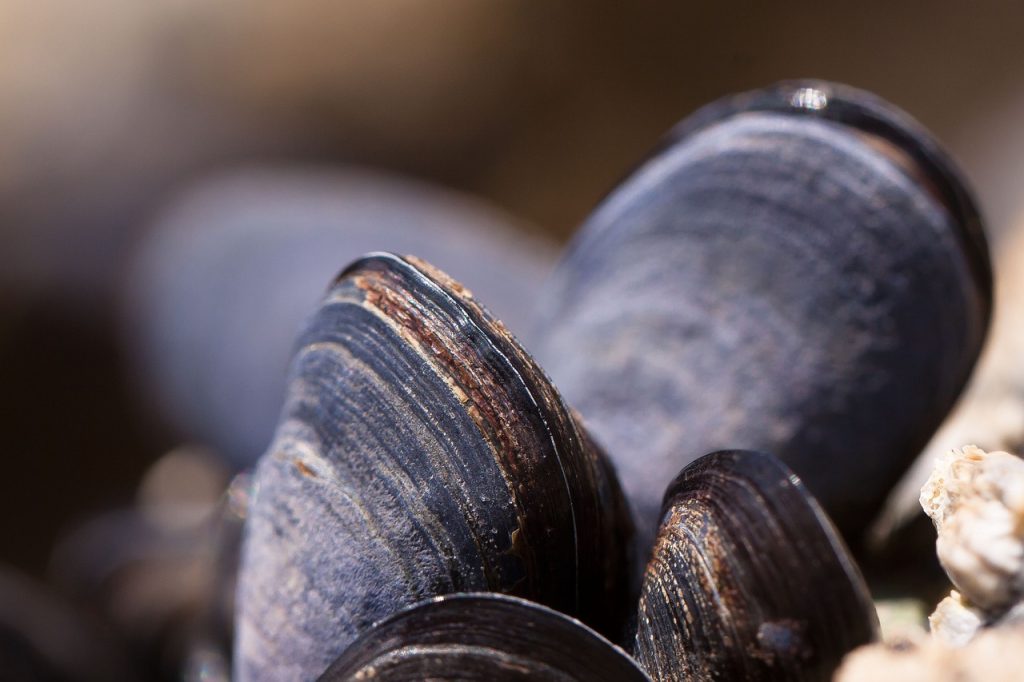All fields are required
Posted in Food Safety,Our Blog,Outbreaks & Recalls on May 26, 2024

A cluster of illnesses of paralytic shellfish poisoning caused by a biotoxin linked to mussels prompted an investigation by the Oregon Health Authority.
According to the press release, there have been at least 20 people sickened by this naturally occurring biotoxin.
Some of these illnesses were serious enough to require hospitalization. No deaths have been reported from this biotoxin linked to mussels at this time.
Here’s what we know.
The area of concern is between the Washington State border and Seal Rock State Park.
“All 20 people who fell ill reported recreationally harvesting mussels Saturday and Sunday at Short Beach near Oceanside in Tillamook County, and Hug Point and near Seaside in Clatsop County.”
In response to these cases of biotoxin linked to mussels from this area, the Oregon Department of Fish and Wildlife and the Oregon Department of Agriculture closed a stretch of the Oregon Coast to mussel harvesting on May 23, 2024.
Coastal areas from Seal Rock State Park north to Cape Lookout have been closed to mussel harvesting due to high levels of paralytic shellfish poisoning. The area was extended to the Washington border on May 26, 2024, after testing revealed that those areas were also above the safety limit.
There are other areas that remain safe for harvesting at this time. Areas from about Waldport southward through the California boarder are not included in this warning. Yachats, Florence, Reedsport, Coos Bay, Bandon, Port Oxford, Gold Beach, and Brookings all have the all clear for now.
Closely monitor Oregon Department of fish and Wildlife and Oregon Department of Agriculture postings for the most up to date information, and as always use caution when wild-harvesting mussels and other shellfish.
The Oregon Health Authority is concerned for those who have mussels in their fridges or freezers planning to eat them later.
“We have two messages,” the statement reads.
The first involves any mussels that may have been collected but not yet eaten. “If you have any mussels gathered since Saturday from beaches within the area of coastline that ODFW [Oregon Department of Fish and Wildlife] and ODA [Oregon Department of Agriculture] closed to harvesting – that you are preparing for a meal or keeping in the freezer for a later time- throw them out now and do not feed them to pets,” said Emilio DeBess, epidemiologist at the Oregon Public Health Division’s Aute and Communicable Diseases Prevention Section.
Additionally, those who have already consumed the mussels should monitor for symptoms. “And if you have eaten any of these mussels and are feeling ill, see a doctor right away,” continued DeBess.
Paralytic shellfish poisoning, is the broad category that encompasses the illnesses related to the biotoxin linked to mussels in this warning. It is caused by saxitoxins that are produced by marine algae.
Certain dinoflagellates are known to produce this toxin. These include Gymonodinium catenatum, Pyrodinium bahamense, and Alexandrium species.
Shellfish such as scallops, mussels, clams, oysters, cockles, as well as certain fish and crabs can become contaminated by this naturally occurring biotoxin.
Unfortunately, it is both the most common and most severe form of shellfish poisoning. While it can be observed worldwide, it is more common in the temperate waters off the Atlantic and Pacific coasts of North America.
This shellfish poisoning can be prevented by avoiding harvesting during or shortly after algal blooms, where shellfish are more likely to become contaminated.
It is all but impossible to determine if your shellfish is contaminated. Contaminated shellfish does not necessarily taste any different from those safe to eat.
Cooking and/or freezing contaminated shellfish does not destroy the toxins, so there is no way to cook or handle it to render it safe. Shellfish or mussels obtained during algal blooms or when waters are closed to harvesting should be discarded.
Symptoms of paralytic shellfish poisoning often come on quickly. Often appearing around 30 to 60 minutes after a person consumes the toxin.
Symptoms often include numbness and tingling of the face, lips, tongue, arms, and legs.
Other symptoms may include:
Severe cases (usually involving large doses of the toxin) may present symptoms of:
Anyone experiencing symptoms should see their healthcare provider right away. Prompt and appropriate medical treatment can lessen the risk of death. Paralytic shellfish poisoning can be deadly, especially for children and those with a compromised immune system. However, anyone can be effected by the toxin.
There is no known antidote for paralytic shellfish poisoning, like that involved in the current outbreak of illnesses associated with biotoxin linked to mussels. Only supportive care and, if necessary, respiratory support can be provided.
Essentially, healthcare professionals can monitor for worsening symptoms, respond with symptomatic treatments, and provide mechanical ventilation in the event of respiratory failure (you stop breathing on your own).
State epidemiologist DeBess explains that this warning is limited to privately harvested mussels. This does not apply to those that are commercially produced. The mussels found in your grocery store or in dishes at restaurants do not apply to this biotoxin event.
If you’d like to know more about food safety topics in the news, “Biotoxin Linked to Mussels Sickens At Least 20 People Says Oregon Health Authority,” check out the Make Food Safe Blog. We regularly update trending topics, foodborne infections in the news, recalls, and more! Stay tuned for quality information to help keep your family safe, while The Lange Law Firm, PLLC strives to Make Food Safe!
By: Heather Van Tassell (contributing writer, non-lawyer)